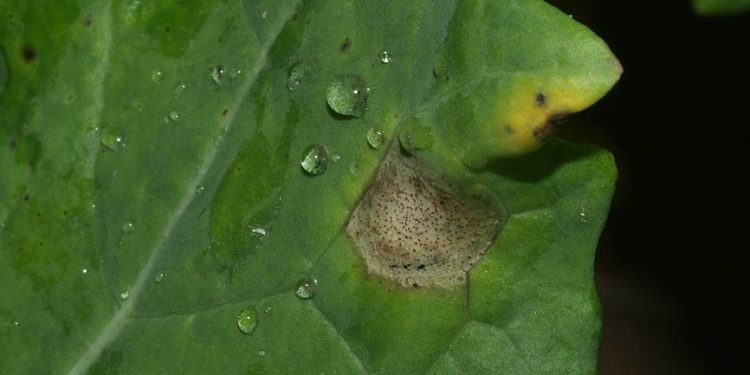#CropProtection #FungalDiseases #PhomaPrevention #YieldMaximization #Agriculture
Phoma stem canker, caused by the fungus Phoma lingam, is a destructive disease that affects a variety of crops, including oilseed rape, mustard, and canola. The disease is prevalent in many parts of the world and can cause significant yield losses if left untreated. In this article, we will explore the development of Phoma stem canker, its consequences, and methods to combat it.
Phoma stem canker is a disease that attacks the stems of plants, causing them to weaken and eventually break. The fungus produces spores that spread through wind or rain, and once they land on a susceptible plant, they penetrate the tissue and begin to grow. The disease can develop at any stage of the plant’s growth, but it is most prevalent during the later stages of growth and can cause significant yield losses.
One of the most significant consequences of Phoma stem canker is a reduction in yield. Infected plants produce smaller seeds or no seeds at all, leading to reduced harvests. Additionally, plants with Phoma stem canker are more susceptible to other diseases and pests, which can further reduce yields. Finally, the fungus can overwinter in plant debris, making it difficult to eradicate and increasing the likelihood of future infections.
Preventing and treating Phoma stem canker is essential for maintaining healthy crops and maximizing yields. One of the most effective methods of prevention is crop rotation, which involves planting different crops in a field each year. This can reduce the buildup of Phoma lingam in the soil and prevent future infections. Additionally, farmers can use fungicides to treat infected plants or as a preventative measure before the disease appears.
Phoma stem canker is a destructive disease that can significantly reduce crop yields. It is caused by the fungus Phoma lingam and can be prevented through crop rotation and fungicide use. By understanding the development of the disease and implementing effective preventative measures, farmers can protect their crops and ensure maximum yields.































